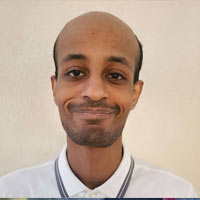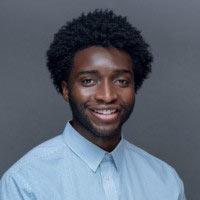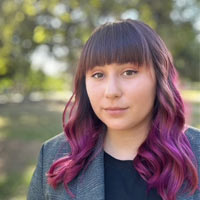Blogs
The latest cybersecurity trends, best practices, security vulnerabilities, and more
Where Future Leaders Begin Their Journey: The Trellix Emerging Leader Program
By Trellix · September 9, 2024
This blog was written by Donovan Bailey
What does it mean to be a leader? And how does one grow into that role? The Emerging Leader Program at Trellix is designed to explore and answer these essential questions. This program isn’t just about learning leadership; it’s about cultivating the next generation of leaders through hands-on experiences and meaningful mentorship. Participants delve into what it means to lead with purpose, develop the skills needed to navigate complex challenges, and learn how to inspire and empower others to reach their full potential in their given field.
As someone who has spent the last two years immersed in this program, I’m excited to take you on an in-depth exploration of what the Emerging Leader Program truly entails. I will also gladly introduce you to the remarkable individuals who are part of it. This is a three-part series that will show perspectives on the program, from the experiences of the current emerging leaders to the ambitions of future emerging leaders and the insights of alumni who have ventured out and are forging their own paths within Trellix.
In this first part, I’m thrilled to introduce you to the current Emerging Leaders at Trellix and share their journeys, experiences, and insights with you. These exceptional individuals have been chosen for their potential to lead, innovate, and inspire. As they rotate through various departments and roles, they gain a deeper understanding of the broader business and sharpen their leadership abilities. These five Emerging Leaders began their journey in 2022 and are on track to graduate at the end of 2024. They represent the future of Trellix, embodying the qualities and values that will drive our company forward. As participants in the Emerging Leader Program, they are not just preparing for leadership—they are actively shaping the future.
Can you tell us about yourself and how you first learned about the program?
Omar Abdurahman “I graduated from the Univesity of Texas at Dallas with a bachelor’s in Electrical Engineering. I knew someone who worked in the company, and they told me I would be a perfect fit. Our commitment to our users and our role in protecting them drew me in. Outside work, I enjoy track races and field events; I am always happy to discuss racing and other sports-related topics.”
Tobi Olawale “Before Trellix, I was a Project Engineer at a construction company for two years. I became interested in working in technology but didn't know where I could fit in with my uncommon background. I learned about this program from a schoolmate who was a part of it; he also switched careers from engineering to technology. He told me about his diverse experiences and learning opportunities and highly recommended that I apply. ”
Samantha Trevino “I graduated from USC, Sacramento, with a bachelor’s in computer science and an associate’s in Psychology from Sacramento Community. After I graduated, I wasn’t sure what field I wanted to go into. Luckily, I knew someone at Trellix who told me about the Emerging Leaders Program. In my free time, I’m a huge video game nerd and enjoy yoga, reading, and painting.”
Blake Shirley “I first learned about the Emerging Leader Program through a Trellix employee. It caught my attention because it offers a unique opportunity to accelerate leadership skills while gaining exposure to various business functions. Beyond work, I’m a huge football fan, especially regarding the Kansas City Chiefs, and I love outdoor activities, like going on long walks with my dogs or exploring trails.”
Donovan Bailey “I graduated from UT at Dallas with a bachelor's in arts, technology, and emerging communications, focusing on design and production. When I graduated, I had difficulty finding what I wanted to do. A friend introduced me to the Emerging Leader Program, and I couldn't believe the opportunity it offered, so I immediately applied. I enjoy traveling, exploring new places, and trying new food in my pastime.”
What roles and responsibilities have you had since joining the program?
Omar Abdurahman “In Competitive Intelligence, I helped make competitive battle cards on competitors and worked on pulling Gartner reviews for our site. Within Enablement, I helped take data from Teams to Google and created a site. In Channel helping with Amazon Web Services (AWS), I assisted with lead template form submissions, rebate collection, and event planning.”
Tobi Olawale “My first role was in Product Management, where I learned how to strengthen and improve our company's technology based on customer needs. In Solutions Engineering, I got an overview of Trellix’s product portfolio and intimately learned how to position our products and features to customers. Portfolio Marketing and Enablement aligned marketing teams with product capabilities. With the Threat Intelligence team, I identified and encoded global threats, campaigns, and vulnerabilities to strengthen our product capabilities and published articles about critical vulnerabilities.”
Samantha Trevino “I started in Competitive Intelligence, which taught me to think critically about what companies said about their products and how to condense it to support our sales team. That way, they’re more prepared to talk about our competitors in the field. I practiced writing product requirements in Product Management, which helped me practice communication and planning. In Professional Services, I learned more about the people side of the business. Lastly, Sales Operations and Revenue Operations taught me about sales strategies, how sales pipelines work, and how to search through data to find statistics to help us improve our business practices.”
Blake Shirley “I started in Solution Engineering to get hands-on with our products and build a solid technical foundation. I moved into Channel Sales, focusing on building and maintaining partner relationships. My next rotation was in HR with the Total Rewards team, which opened my eyes to how HR impacts the business. Now, I’m working as an HR Business Partner for Sales, using all I’ve learned to support the team's success.”
Donovan Bailey “I began in Demand Generation, focusing on data analytics and MDR Support. Later, I transitioned to the Pre-Sales Operation team, supporting Solution Engineer enablement and assisting with database transfers. After that, I moved to Sales Enablement, where I helped revamp the new hire process and create assets used across Trellix. Currently, I'm working with the communications team, creating communications, planning events, and developing content, such as this blog!.”
What has been the most challenging or rewarding project you’ve worked on, and what made it significant for you?
Omar Abdurahman “The migration of data from Microsoft to Google was quite a daunting task, but I learned a lot about myself and Google. Ultimately, it became an enjoyable challenge. I got to create something that people use every day, and that felt good.”
Tobi Olawale “Leading the product discovery for our Integrations Hub was definitely my most challenging and rewarding project thus far. I had to navigate large amounts of ambiguity and work cross-functionally with many stakeholders. After endless meetings and research, finally seeing the Integrations Hub come to life with mocks from the UX/UI team was incredibly satisfying. Every screen, option menu, interactive button, etc., had a story behind it that I was able to curate from all of my conversations and discovery work.”
Samantha Trevino “Challenging? I’d have to say the product requirements I was working on. Because I often looked at it as a dev, and I would sometimes over-specify how things should be done. So, finding the line between being clear enough on what I wanted, open enough that I didn’t tell them how to code it, and specific enough that I didn’t forget little details was a great exercise.”
Blake Shirley “Leading the focus groups for the Sales department to improve our eNPS (employee Net Promoter Score) was a project that was important to me because it directly influences employee engagement and satisfaction, which are vital to our team's success. It’s been tough to balance different viewpoints and ensure the feedback we gather is actionable. However, it’s incredibly fulfilling to see how these insights can drive real changes and make our work environment better. This experience highlights the value of listening to employees and taking meaningful action, which resonates with my growing interest in HR and leadership.”
Donovan Bailey “The project that comes to mind was creating a new hire program for Trellix. We had to condense it from a 12-week program into a 4-week one. This was a significant change, but the team and I had an opportunity to establish “what good looks like.” When starting this change, there were many ideas to draw from and execute. We spent months creating content, developing plans, and finally releasing it to the wild for all new hires to see. I'm proud to be a part of something that represents Trellix to the outside world and for being part of a great team! The reward was well worth the time and effort we spent developing it.”
In your view, what qualities are most important for leadership and why?
Omar Abdurahman “A leader should embody strong communication and emotional intelligence, enabling them to inspire and guide their team effectively. Handling difficult situations calmly is something I admire a lot about a leader.”
Tobi Olawale “Genuine interest in the success of your team members is an essential quality for any business leader. In my various roles, I have been fortunate enough to work under leaders who cared about my growth. This gave me the confidence to take on new and challenging tasks without fear of failure.”
Samantha Trevino “Patience, empathy, foresight, and communication are the most important qualities of a leader. A leader must work with people of all different backgrounds, skill levels, and communication styles, which requires patience and communication. They also need empathy so they can connect with their team; the better the connection, the better the trust. Lastly, a leader has to have foresight so they can plan on leading their team to success.”
Blake Shirley “Great leaders need to be empathetic, adaptable, and inspiring. Empathy helps leaders connect with their team, understand their needs, and build a supportive atmosphere. Adaptability is crucial because it allows leaders to handle change and challenges effectively. Inspiring is essential for motivating the team and helping them strive toward a shared goal. These qualities, along with a strong sense of integrity, really make a difference in effective leadership.”
Donovan Bailey “The most important qualities of a leader are honesty and accountability. Honesty is essential because it builds trust with those who follow you. A great leader is transparent and sincere, providing clear and constructive feedback. Accountability is equally important. A leader must take responsibility for their actions and decisions. By holding themselves accountable, leaders set an example for their team, demonstrating the importance of owning up to mistakes and learning from them.”
What’s Next
As these emerging leaders continue to grow and develop, they are well on their way to becoming the driving force behind Trellix’s future success. Their journey is just the beginning, but their impact is already felt across the organization. By investing in their growth, we ensure that Trellix remains a leader in our industry, capable of adapting to change and seizing new opportunities. We’re excited to follow their progress and share more stories about the Emerging Leaders of today and the future.RECENT NEWS
-
Jun 17, 2025
Trellix Accelerates Organizational Cyber Resilience with Deepened AWS Integrations
-
Jun 10, 2025
Trellix Finds Threat Intelligence Gap Calls for Proactive Cybersecurity Strategy Implementation
-
May 12, 2025
CRN Recognizes Trellix Partner Program with 2025 Women of the Channel List
-
Apr 29, 2025
Trellix Details Surge in Cyber Activity Targeting United States, Telecom
-
Apr 29, 2025
Trellix Advances Intelligent Data Security to Combat Insider Threats and Enable Compliance
RECENT STORIES
Latest from our newsroom
Get the latest
Stay up to date with the latest cybersecurity trends, best practices, security vulnerabilities, and so much more.
Zero spam. Unsubscribe at any time.





